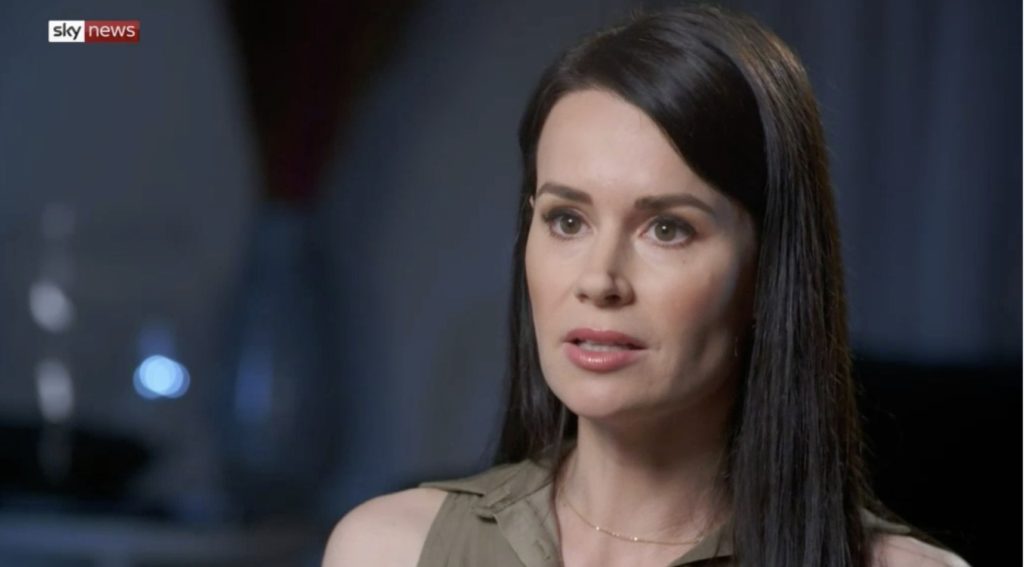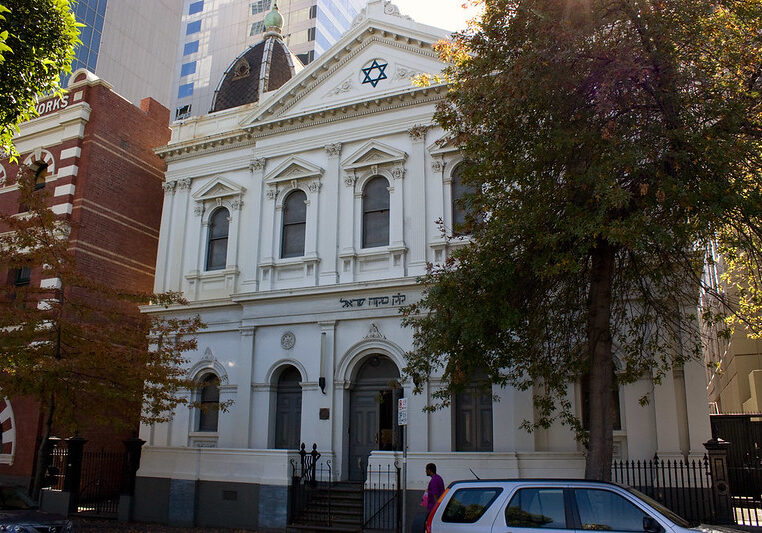Australia/Israel Review
Former hostages unite to confront Iran
Mar 31, 2021 | Naomi Levin

Australians are more aware than ever of the brutality of the Iranian regime after details emerged recently of Kylie Moore-Gilbert’s inhumane ordeal in Iranian prisons.
As this awareness grows, there is reason to hope that international powers may be persuaded to refuse to support nuclear deal renegotiations unless Iran stops imprisoning foreigners on the flimsiest of charges.
In 2018, Melbourne-based, Middle East studies academic Moore-Gilbert travelled to Iran to attend an academic conference. At the airport, as she prepared to board her plane back to Australia after the conference, she was arrested by the Islamic Revolutionary Guard Corps (IRGC), the Iranian militia answerable only to the Supreme Leader.
Moore-Gilbert faced a kangaroo court and was sentenced to 10 years in prison for supposedly being a spy.
A complicated diplomatic swap saw her returned to Australia after more than 800 days in prison – seven months of which were spent in solitary confinement in Ward 2A of Evin Prison, the notorious and brutal home of Iranian political prisoners controlled by the IRGC. In exchange for her freedom, Thailand released three men accused of offences related to the attempted bombing of the Israeli Embassy in Bangkok.
Since her return to Australia, Moore-Gilbert has taken to social media to share snippets of her experience in Iran, as well as to draw attention to the plight of her fellow foreign prisoners who remain unjustly incarcerated by a brutal regime.
“2A is not designed for prolonged habitation, its very purpose is to break prisoners psychologically for interrogation,” she wrote on Twitter.
Speaking from her own experience, Moore-Gilbert wrote that prisoners are filmed 24-hours a day, even when using the bathroom. No pillows, mattresses, chairs or tables are provided to prisoners and when they leave their cells, they are blindfolded. Medical treatment is dispensed as a “reward” for cooperation and all COVID-19 protocols are ignored.
Moore-Gilbert also sat down for an extended Sky TV interview in mid-March. During that interview she called Evin Prison “a black hole, essentially a black site. It is outside the scope or control of any other organisation other than the RGs [IRGC].”
The limited amount we now know of Moore-Gilbert’s story provides fascinating insights into the cruel nature of the Iranian regime. It is a regime that its silver-tongued Foreign Minister, Javad Zarif, admits wants to force Western nations to make prisoner swaps.
As of late March 2021, there are more than a dozen foreigners who have been confirmed as being held in Iranian prisons.
The foreigners in prison include Britons Anooshe Ashoori and Mehran Raoof, Swede Ahmadreza Djalali, German Nahid Taghavi, Austrians Kamran Ghaderi and Masud Mossaheb and Americans Morad Tahbaz, Emad Sharghi, Baquer Namazi and Siamak Namazi.
French citizen Fariba Adelkhah remains in custody serving a six-year sentence that the French Government has “utterly condemned”. One year ago, France secured the release of her partner, French academic Roland Marchal, in a prisoner swap for an Iranian man accused of trying to smuggle goods into Iran in violation of sanctions. A third French citizen, tourist Benjamin Briere, was charged with espionage this month for taking a photo in the Iranian desert.
Meanwhile, British mother and charity worker Nazanin Zaghari-Ratcliffe completed her sentence in March, but rather than being allowed to return to the United Kingdom to be reunited with her family, she was immediately charged with additional, falsified charges and continues to await her fate in Iran.
With Marchal, Moore-Gilbert, and others, Iran has been willing to negotiate their release – at a high price. However, those negotiations have been less fruitful with respect to dual nationals, because Teheran refuses to recognise dual citizenship. According to some reports, Iran completely denies dual nationals access to consular assistance. This causes terrible grief for their families, most of whom have extremely limited opportunities to communicate with their loved one.
Hostage diplomacy – the practice of states arresting individuals solely to be used to extract concessions from other states – is a growing issue of international concern.
In February, the Canadian Government led the launch of a global initiative condemning the arbitrary arrest of foreign nationals by regimes in order to exercise leverage over foreign governments. The declaration was signed by 59 countries, including Australia, but did not single out any one country. It followed high profile detention of foreign nationals by Iran, China and, most recently, Myanmar.
Australia’s Foreign Minister Marise Payne has highlighted Australia’s opposition to foreign hostage taking and emphasised that “Australia will hold countries to account for their international commitments and the obligation to comply with international laws and practices.”
US Secretary of State Antony Blinken has called the practice a “serious issue”, adding “this will not be tolerated by the international community.”
Moore-Gilbert is also trying to encourage such international efforts through a new international advocacy group, Hostage Aid Worldwide. She told the global launch of the new group that international coordination along the lines of the Canadian initiative (though she did not refer to it explicitly) is needed to stop such hostage diplomacy:
“We call on governments to take action to disrupt the hostage taking business model. A coordinated effort is needed, both in terms of strengthening international legal mechanisms and in information and best practice sharing between western states.”
Hostage Aid Worldwide’s board includes Barry Rosen, Nizar Zakka and Wang Xiyue, each of whom spent a significant amount of time in Iranian detention.
At its launch, Hostage Aid Worldwide held a panel discussion on hostage taking and the 2015 Iran nuclear deal, known as the JCPOA. This agreement, while still technically in place, is in tatters with the United States withdrawing and reimposing harsh financial sanctions in 2018, and Iran continually escalating its material breaches of the deal since 2019.
US President Joe Biden has made clear that his country will return to the deal if Iran first returns to compliance with all JCPOA commitments. However, in addition to its ongoing and increasing breaches of its JCPOA obligations, recent reports reveal that Iran continues to hide key components of its nuclear weapons program from UN inspectors, contrary to international law.
It is the view of Hostage Aid Worldwide, as well as Moore-Gilbert and many other former foreign prisoners, that a pre-condition for any further nuclear negotiations should be an end to Iran’s hostage taking.
Rosen, one of 52 Americans detained in the US Embassy in Teheran in 1979 for more than 14 months, is among those who support this view.
“I absolutely agree that hostages need to be freed before [JCPOA] negotiations, but given the fact that Iranians don’t accept anything in terms of international law, we need to have a dual track,” Rosen said.
“What we need is not to accept an agreement until there is some sort of acceptable agreement on both sides about hostages. That means Iran should be releasing all hostages and not taking any hostages in the future.”
Wang, a Chinese-born American scholar who was imprisoned in Iran for nearly four years despite being given permission by Iranian authorities to undertake research in the country, is a staunch opponent of any concessions being given to the Ayatollahs and their Islamic revolutionary regime.
Wang advocates strongly that the Trump Administration’s “maximum pressure” policies of harsh sanctions on Iran need to be given more time to work.
The JCPOA is “directly responsible for Iran’s hostage taking spree,” Wang said.
The idea behind the JCPOA was for Iran to become a law-abiding member of the international community after freezing parts of its nuclear program. However, many experts, Wang included, argue the terms of the JCPOA were ineffective in persuading the Iranian regime to change its behaviour.
“[Former US President Barack] Obama’s misplaced goodwill toward Iran really exacerbated Iran’s bad behaviour,” Wang said.
“Now the Biden Administration is talking about a return to the JCPOA, I think it is critical to make American hostages, and for that matter, all foreign hostages in Iran, part of the negotiations.”
Speaking to The Atlantic magazine, Wang said he had once naively believed the JCPOA would work. “If I could go back, I would slap myself,” he said.
“They [the Iranian Ayatollahs] don’t want to be our friends. They don’t want to reconcile … They say it clearly, they want us as an enemy because that is the reason for their existence.”
Tags: Australia, human rights, Iran, JCPOA, Kylie Moore-Gilbert






